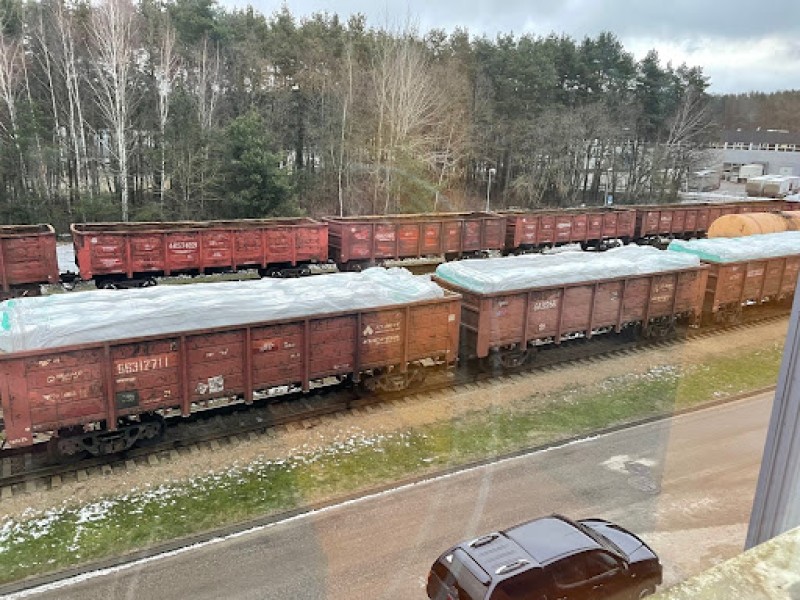A joint investigation by Siena and the Belarusian Investigative Center (BIC) from February last year revealed that the sanctioned Belarusian fertilizer manufacturer Grodno Azot continued to export its products into the EU using intermediary companies.
Lithuanian authorities launched investigations against several companies, and the national railways heavily tightened their preventive procedures, announcing last week that since March last year, they rejected 3,800 applications to move cargo from Russia and Belarus, mostly fertilizers, oil, and petrochemical products.
“In total, between March and December, requests to move 52,307 railway cars were rejected,” the company said in a press release.
Apart from fertilizers, the investigation by the two OCCRP partners also exposed schemes used to move sanctioned wood and steel through the country with forged paperwork that showed the products came from Kazakhstan, Kyrgyzstan, or Uzbekistan.
After the investigation was published, Lithuanian imports from Central Asian countries dropped significantly, in some cases, almost to zero.



